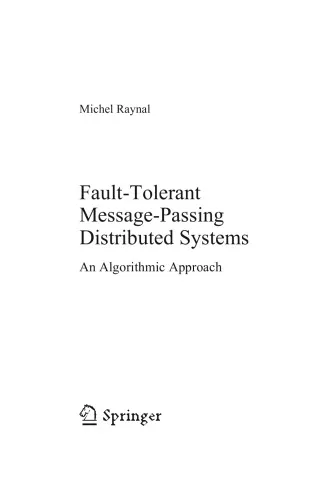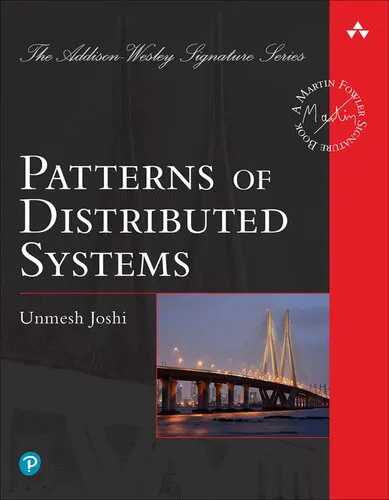Fault-Tolerant Message-Passing Distributed Systems. An Algorithmic Approach
4.0
Reviews from our users

You Can Ask your questions from this book's AI after Login
Each download or ask from book AI costs 2 points. To earn more free points, please visit the Points Guide Page and complete some valuable actions.Related Refrences:
Welcome to an in-depth exploration of "Fault-Tolerant Message-Passing Distributed Systems. An Algorithmic Approach." This book is a comprehensive resource that delves into one of the most compelling areas of computer science: distributed systems. In today's interconnected world, where systems are becoming increasingly decentralized, the need for robust, fault-tolerant algorithms is more critical than ever. This book provides a detailed examination of the principles and practices that make distributed systems resilient to failures.
Detailed Summary of the Book
"Fault-Tolerant Message-Passing Distributed Systems. An Algorithmic Approach" is meticulously crafted to serve both as an academic textbook and a reference guide for professionals in the field. It lays out the foundational concepts essential to understanding distributed systems and progressively builds on these concepts with advanced topics. The book covers a wide range of subjects, from core properties of distributed systems such as consistency and availability to more nuanced topics like asynchronous and synchronous messaging.
The author explains the challenges in achieving coordination among distributed nodes, providing insight into algorithms for consensus and agreement in the face of system failures. Each chapter is structured to first introduce the problem space, followed by detailed algorithmic solutions, and concludes with practical examples and exercises that reinforce learning. The book explores a variety of fault-tolerance techniques, including redundancy, checkpointing, and replication, and discusses their trade-offs and efficiencies.
Key Takeaways
- Understanding the intrinsic challenges in designing distributed systems that can withstand node failures and network partitions.
- A comprehensive examination of consensus algorithms, such as Paxos and Raft, and their applications in real-world systems.
- An in-depth look into message-passing paradigms and how they can be leveraged for building resilient distributed architectures.
- Exploration of advanced fault-tolerance strategies and how they can be implemented to enhance system reliability.
- Insights into the trade-offs between consistency and availability when designing systems that adhere to the CAP Theorem.
Famous Quotes from the Book
"In a distributed system, failure is not an exception condition but the normal state, and designing around this premise is essential for building resilient systems."
"Agreement in a distributed system is both the problem and the solution. How we navigate this reflects the essence of our algorithmic approach."
Why This Book Matters
In the era of cloud computing and microservices, the principles presented in this book are paramount. It arms practitioners and students alike with the knowledge to tackle complex challenges in distributed computing environments, where failures are inevitable. By emphasizing algorithmic solutions, the book not only helps in comprehending theoretical underpinnings but also translates these concepts into practical, implementable strategies.
As distributed systems become a staple of technological infrastructure, understanding fault tolerance is no longer optional—it's a necessity. This book demystifies the complexity of distributed systems design and equips readers with the tools needed to design applications that remain robust in the face of adversity.
Free Direct Download
You Can Download this book after Login
Accessing books through legal platforms and public libraries not only supports the rights of authors and publishers but also contributes to the sustainability of reading culture. Before downloading, please take a moment to consider these options.
Find this book on other platforms:
WorldCat helps you find books in libraries worldwide.
See ratings, reviews, and discussions on Goodreads.
Find and buy rare or used books on AbeBooks.
1321
بازدید4.0
امتیاز50
نظر98%
رضایتReviews:
4.0
Based on 0 users review
"کیفیت چاپ عالی بود، خیلی راضیام"



